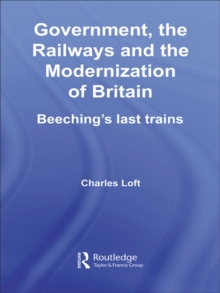
Power and Political Economy from Thatcher to Blair : The Great Enemy of Democracy? PDF
by Robert Ledger
Part of the British Politics and Society series
Description
This book investigates the policies of the Thatcher, Major and Blair governments and their approaches towards concentration of economic and political power.
The 1979–2007 British governments have variously been described as liberal or, to use a political insult and a favourite academic label, neoliberal. One of the stated objectives of the Thatcher, Major and Blair governments—albeit with differing focal points—was to disperse power and to empower the individual. This was also a consistent theme of the first generation of neoliberals, who saw monopolies, vested interests and concentration more generally as the ‘great enemy of democracy’. Under Thatcher and Major, Conservatives sought to liberalize the economy and spread ownership through policies like Right to Buy and privatisation. New Labour dispersed political power with its devolution agenda, granted operational independence to the Bank of England and put in place a seemingly robust antitrust framework. All governments during the 1979–2007 period pursued choice in public services. Yet our modern discourse characterises Britain as beset by endemic power concentration, in markets and politics. What went wrong? How did so-called neoliberal governments, which invoked liberty and empowerment, fail to disperse power and allow concentration to continue, recur or arise?
The book will be of interest to students and scholars of contemporary British history, political economy and politics, as well as specific areas of study such as Thatcherism and New Labour.
Information
-
Download - Immediately Available
- Format:PDF
- Pages:168 pages
- Publisher:Taylor and Francis
- Publication Date:04/03/2021
- Category:
- ISBN:9781000352269
Other Formats
- EPUB from £31.58
Information
-
Download - Immediately Available
- Format:PDF
- Pages:168 pages
- Publisher:Taylor and Francis
- Publication Date:04/03/2021
- Category:
- ISBN:9781000352269










